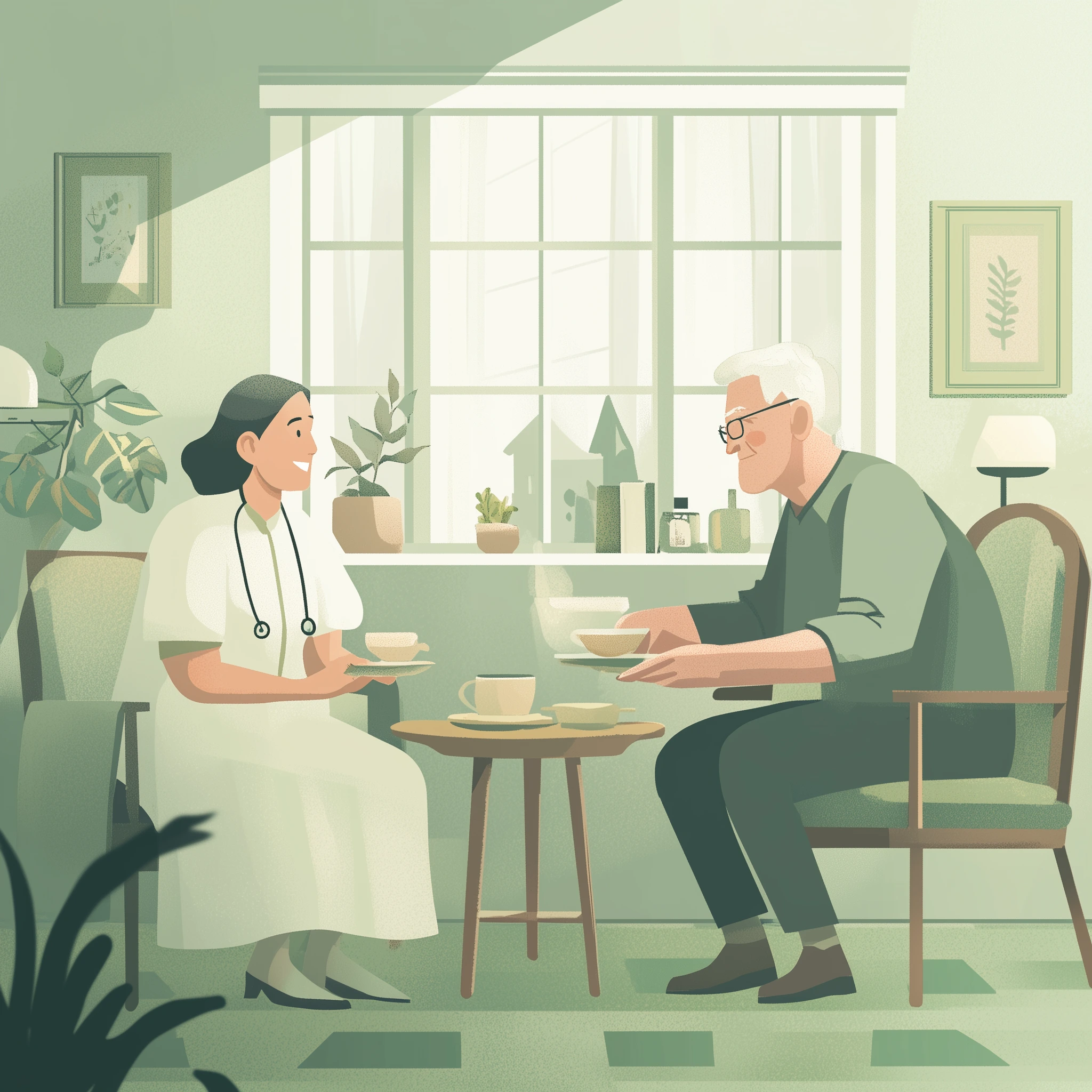
What To Expect From A Palliative Home Care Plan
- Published on
- Authors

- Author
- HP Homecare
Palliative care at home is not just a service but a compassionate approach to managing advanced illness. It’s about offering bespoke solutions tailored to individual needs right in the comfort of one’s home, prioritising comfort and dignity. This form of care is pivotal, forming a nuanced bridge between medical treatment and holistic support for families and patients facing serious health challenges.
Personalised Care Plans: Tailoring to Individual Needs
Every patient’s predicament and needs vary, and thus, a one-size-fits-all approach simply doesn’t work in palliative care. Personalised care plans are pivotal, designed after thorough assessments by healthcare professionals. These plans address specific symptoms and the unique emotional and psychological needs of each patient, ensuring that treatments are as effective and humane as possible.
Effective Symptom and Pain Management
An essential component of palliative care at home is managing symptoms and pain. This ensures that clients suffer the least amount of distress possible. Approaches can include conventional medications, physical therapies, and complementary treatments like massage or acupuncture, all tailored to reduce discomfort and enhance everyday functions.
Emotional and Psychological Support
Facing a life-limiting condition is undeniably stressful for both the patient and their family. Palliative care services foster a supportive environment that extends beyond physical needs, tending to emotional and psychological health through counselling sessions, therapeutic communication, and continuous emotional support, ensuring that none feels alone in their journey.
Coordinated Healthcare Collaboration
Effective home care requires seamless collaboration among various healthcare professionals. From GPs to specialists and from carers to therapists—every role is synchronised to maintain a continuum of care. This coordination ensures that treatments are timely, complications are managed promptly, and every healthcare touchpoint understands the patient’s evolving needs.
Everyday Assistance with Daily Life
A significant advantage of at-home palliative care is the hands-on support patients receive with daily activities. Be it personal hygiene, nutritional support, or mobility assistance, carers play an indispensable role in making daily life not only manageable but also dignified.
24/7 Access to Medical Assistance
Emergencies can happen at any time. Therefore, having 24/7 access to medical assistance is an indispensable component of palliative home care. This constant availability reassures families that help is immediately at hand whenever needed, whether it’s for pain management or any other urgent needs that might arise.
Spiritual Care: Addressing the Human Spirit
Sometimes, addressing the spiritual needs of a patient can profoundly impact their wellbeing. Palliative care often includes spiritual counselling, which can offer immense relief and calm to those facing the end of life. This aspect of care is respectful of all beliefs and philosophies, recognising the unique peace and acceptance that spiritual comfort can offer.
By bringing these multifaceted aspects of care into a patient’s home, palliative care services empower individuals to live as fully and comfortably as possible, surrounded by their loved ones. This approach not only enhances the quality of life but profoundly anchors it in what matters most during challenging times—compassion, respect, and dignity.